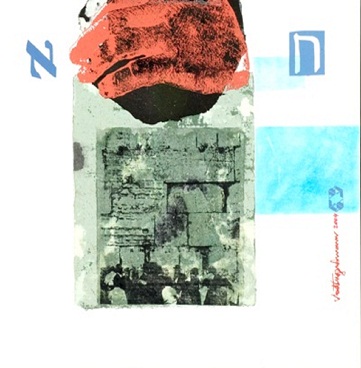For an Aesthetics of Confessional Rhetoric: a Study of Cíntia Moscovich’s Novel Why am I fat, mom?
DOI:
https://doi.org/10.17851/1982-3053.8.14.170-183Keywords:
Cíntia Moscovich, Autobiography, JudaismAbstract
The present article analyzes the confessional rhetoric characteristic of the novel Por que sou gorda, mamãe?, by Cíntia Moscovich. First, this study aims to identify the narrative strategies used by the gaúchan author to leave marks of the rhetoric of confession in all the interstices of the text, in a cyclical dynamics. To this end, it draws on the reflections of Philippe Lejeune about writing in first person as well as on those of Jacques Derrida about the autoimmune nature of the autobiographical text. Second, this article focuses on the origins and the different facets of guilt that the narrator suffers from, leaning on her relationship with the female body and the notion of guilt in Judaism. Moacyr Scliar’s essay Enigmas of guilt contributes with essential elements to understand the specificity of the feeling of guilt in the Jewish tradition.
Downloads
References
DÄLLENBACH, Lucien. Le Récit spéculaire. Essai sur la mise en abyme. Paris: Le Seuil, 1977.
DERRIDA, Jacques; VATTIMO, Gianni (Org.). A religião: o seminário de Capri. São Paulo: Editora Estação Liberdade, 2000.
DIDIER, Béatrice. L’Écriture-femme. Paris: Presses Universitaires de France, 1981.
GENETTE, Gérard. Palimpseste. La Littérature au second degré. Paris: Le Seuil, 1982.
GIDE, André. Journal 1889-1938. Paris: Gallimard, 1948.
LEJEUNE, Philippe. Le Pacte autobiographique. Paris: Éditions du Seuil, 1975.
LOBET, Marcel. Écrivains en aveu: essai sur la confession littéraire. Bruxelles/Paris: Éditions Brepols/ Éditions Garnier Frères, 1962.
MATHE, Sylvie; TEULIE, Gilles (Org.). Cultures de la confession: formes de l’aveu dans le monde anglophone. Aix-en-Provence: Publications de l’Université de Provence, 2006.
MOSCOVICH, Cíntia. Por que sou gorda, mamãe? Rio de Janeiro/São Paulo: Editora Record, 2006.
MOSCOVICH, Cíntia. Entrevista: Por que sou gorda, mamãe?, 2008. Disponível em <http://www.record.com.br/autor_entrevista.asp?id_autor=4165>. Acesso em: 10 out. 2013.
SCLIAR, Moacyr. Enigmas da culpa. Rio de Janeiro: Objetiva, 2007.
STORA-SANDOR, Judith. L’Humour juif dans la littérature: de Job à Woody Allen. Paris: Presses Universitaires de France, 1984.
UNTERMAN, Alan. Dicionário judaico de lendas e tradições. Rio de Janeiro: Jorge Zahar Editor, 1992.
WOODWARD, Kathryn. Identidade e diferença: uma introdução teórica e conceitual. In: SILVA, Tomaz Tadeu da (Org.). Identidade e diferença: a perspectiva dos estudos culturais. Petrópolis: Vozes, 2004.
ZANONE, Damien. L’Autobiographie: thèmes & études. Paris: Ellipses, 1996.
Downloads
Published
How to Cite
Issue
Section
License
Os direitos autorais pertencem exclusivamente aos autores. Os direitos de licenciamento utilizados pelo periódico é a licença Creative Commons Attribution 4.0 (CC BY 4.0): são permitidos o compartilhamento (cópia e distribuição do material em qualquer meio ou formato) e adaptação (remix, transformação e criação de material a partir do conteúdo assim licenciado para quaisquer fins, inclusive comerciais.






